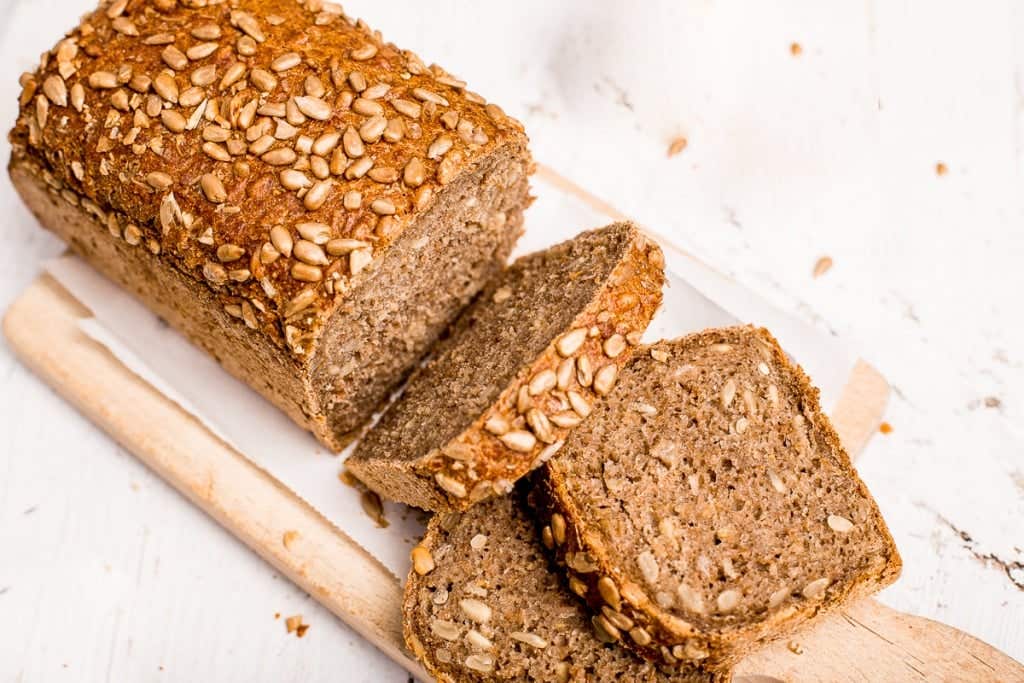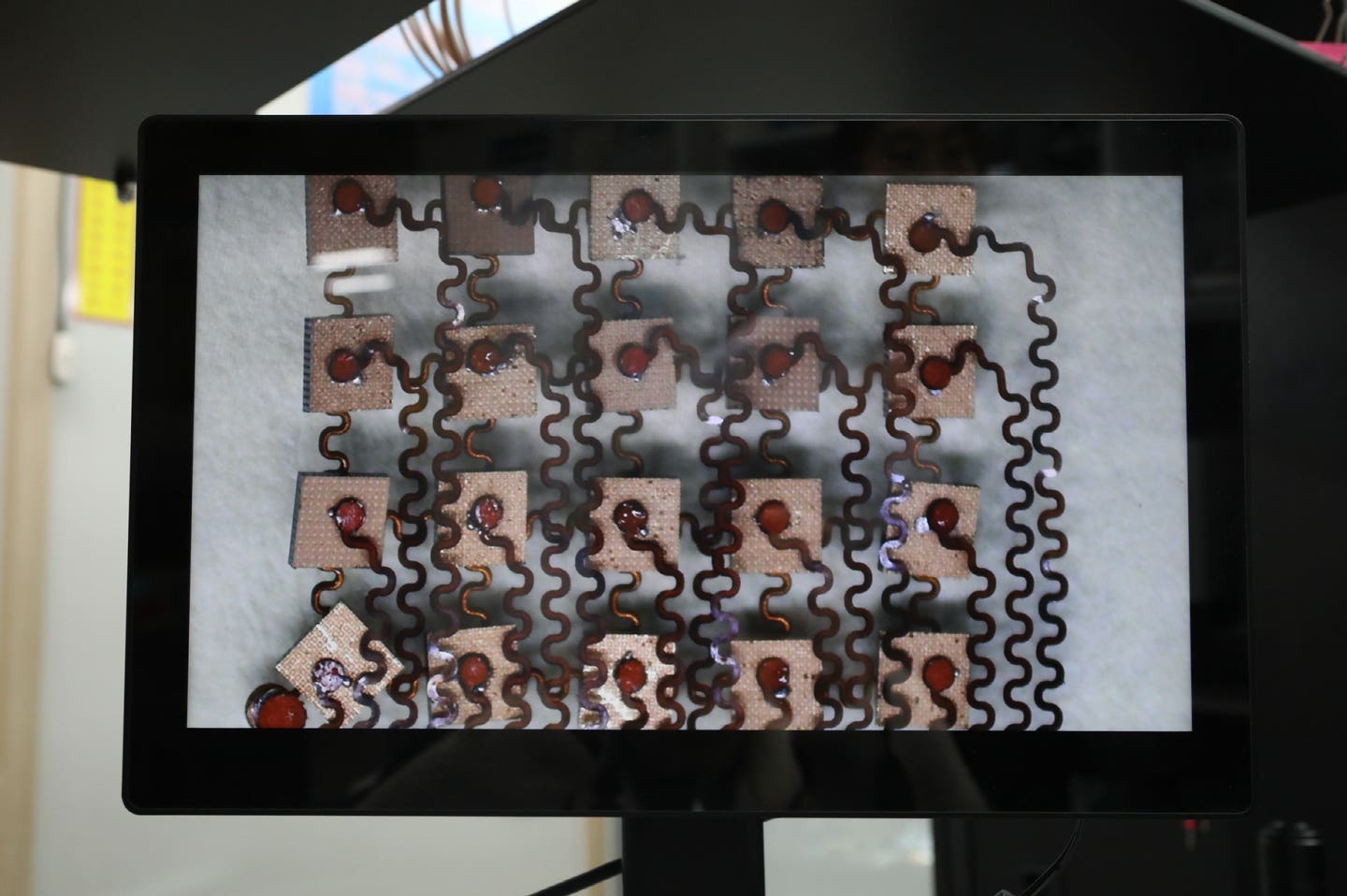Sunflower oil production waste recycled into protein-packed healthy bread flour
A study from the University of São Paulo reveals that adding sunflower seed flour to bread boosts protein, fiber, and antioxidants while reducing waste.

Brazilian study finds sunflower seed flour makes bread healthier and cuts waste. (CREDIT: CC BY-SA 4.0)
Partially defatted sunflower seed flour may soon change what bread means for your diet. In Brazil, researchers from the University of São Paulo found a way to use this flour, a byproduct of sunflower oil production, to create breads richer in protein, fiber, and antioxidants. This could give people healthier options while reducing food waste.
A Flour Often Thrown Away
Each year, huge amounts of sunflower seeds are pressed for oil. What remains is a dense flour, usually sold off at very low prices or treated as waste. But this flour is packed with protein, fiber, iron, calcium, and chlorogenic acid. The acid is known for antioxidant, anti-inflammatory, and blood sugar lowering effects.
“Partially defatted sunflower seed flour has protein levels from 40% to 66%, along with other key nutrients,” says Leonardo Mendes de Souza Mesquita, a biologist from the Institute of Biosciences at the University of São Paulo. He led the recent study published in ACS Food Science & Technology.
The team tested bread recipes where wheat flour was replaced with sunflower flour in varying amounts, from 10% to 60%. They looked at each recipe’s nutrients, dough properties, and final bread texture.
Their findings revealed big changes. For example, bread made with 60% sunflower flour had 27.16% protein – over three times the protein in regular bread, which averages 8.27%. It also had far more antioxidants, measured using Trolox, a vitamin E analog. Trolox levels rose as sunflower flour increased.
“This shows sunflower flour can help reduce oxidative stress, which is tied to many health problems,” says Mesquita. He added that the breads also blocked α-amylase enzymes by 92.81% and pancreatic lipase enzymes by 25.6%. Blocking these enzymes may slow digestion of starch and fat, lowering spikes in blood sugar and aiding weight control.
Related Stories
Balancing Nutrition With Taste
Yet making healthy bread is not simple. Wheat flour is key to dough’s stretchiness, allowing it to rise with air bubbles that give bread its light texture. Replacing wheat with sunflower flour changes this structure. Starting at just 20% sunflower flour, breads became denser with a firmer crust and crumb. The specific volume dropped and the bread lost its usual softness.
However, Mesquita’s team discovered a clever solution. By adding an aqueous extract of sunflower flour, they preserved the dough’s structure and texture. The extract is easy to make by dissolving the flour in water and filtering it. No chemicals are needed.
“The extract keeps the bread’s softness close to that of regular wheat bread,” says Mesquita. He believes bakeries can now explore combining sunflower flour and its extract in different ratios to get the best balance of health benefits and good taste.
Beyond Health: Reducing Food Waste
This research is part of a larger push towards a circular economy. Rather than throwing out food byproducts, industries can find new uses for them, lowering waste while creating new products. “Using sunflower flour covers all three pillars of the circular economy – economic, social, and environmental,” Mesquita explains.
The circular economy model moves away from the old cycle of extracting resources, producing goods, and discarding them. Instead, it keeps materials in use for as long as possible, extracting maximum value before regenerating them. Turning sunflower flour into nutritious bread fits this idea well.
In the study, breads with sunflower flour not only had more protein and antioxidants but also showed benefits in lab tests. The breads blocked digestive enzymes that break down carbs and fats. This could help control blood sugar spikes after meals and manage fat absorption.
Scientists ran these tests by first extracting compounds from the baked breads using ultrasound and water. They then exposed the extracts to enzymes in controlled lab conditions. For α-amylase, they measured how much the enzyme’s ability to break down starch was reduced. For lipase, they tracked how much fat breakdown slowed.
How The Research Was Done
The team prepared eight types of bread. One used only wheat flour, while others had sunflower flour mixed in from 10% up to 60%. They also made a bread with the sunflower aqueous extract added to 100% wheat flour.
To understand the breads, scientists checked chemical composition, moisture, protein, fiber, and antioxidant levels. They measured texture using probes and studied dough elasticity with a Mixolab machine, which tracks how dough behaves when mixed and heated. The antioxidant strength was tested using the ABTS method, a standard test where antioxidants neutralize a blue-green solution, turning it clear.
They also examined the bread’s crumb structure using digital images to count and measure the air pockets. Sensory texture was checked for firmness, chewiness, and springiness. Statistical analysis confirmed significant differences when sunflower flour was added.
Promising For The Future
Wheat flour is a major part of diets worldwide. Yet it is high in refined carbs and low in fiber, increasing risk for type 2 diabetes and obesity. Finding healthier flour options could benefit many. But such swaps often ruin bread’s taste, structure, and appeal.
Sunflower flour brings not only nutrients but also functional compounds like chlorogenic acid. Past research has shown chlorogenic acid lowers oxidative stress, inflammation, and even risk for heart disease and diabetes. Including it in daily foods like bread may boost public health.
Sunflowers are also one of the most widely grown oilseeds. The leftover flour from oil production is abundant and cheap. Using it in food production reduces waste and creates added value for farmers and processors.
This study involved researchers from the Multidisciplinary Laboratory of Food and Health at the State University of Campinas and the Laboratory of Food Technology and Nutrition at the Federal University of São Paulo. Funding came from the São Paulo Research Foundation, known as FAPESP, which supports many science projects across Brazil.
Mesquita, who later won a Young Researcher Grant to continue studying sustainable innovations, believes this work shows what food science can do for both health and the planet. “Transforming waste into products supports the circular economy and benefits society,” he says.
What’s Next For Sunflower Bread?
Though promising, further tests are needed. Researchers want to study how people react to the taste and texture of these breads. They also plan to test different baking methods and ingredient combinations to maximize health benefits without losing sensory appeal.
Bakeries and food companies may soon be able to sell sunflower-enriched breads. Such breads could meet the rising demand for protein-rich, high-fiber foods while also appealing to those wanting sustainable choices.
This approach is not limited to sunflower flour. Other byproducts, such as soybean pulp or fruit peels, might also be used in future foods. Scientists are exploring many ways to reuse what is often wasted to build a more sustainable food system.
As people seek healthier diets and the world looks to reduce food waste, studies like this one from Brazil show there are solutions ready to rise. The humble sunflower, already valued for its oil, might now help shape a better bread for your table.
Note: The article above provided above by The Brighter Side of News.
Like these kind of feel good stories? Get The Brighter Side of News' newsletter.



